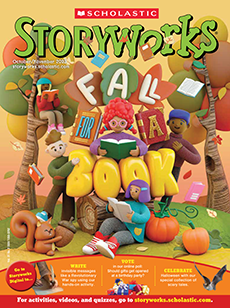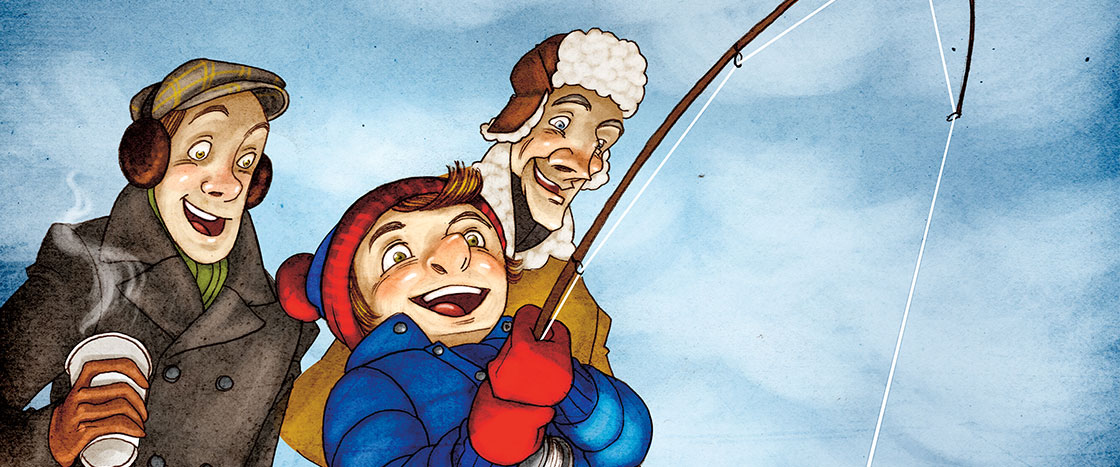For hours, we fished. Which really means we waited.
But that’s what’s awesome about fishing. You’re not really waiting. You’re doing other stuff, like talking.
And my dad and I had tons to talk about. We talked about baseball, movies, music, food, school, girls, animals, and a bunch of other stuff. We told some jokes. We got more hot chocolate.
But we didn’t catch anything.
When the sun started to go down, we ran out of things to talk about. “I think my nose just fell off,” my dad said, and even though he was trying to be funny, I knew that he was miserable.
Suddenly, I was mad at myself. I decided that this fishing trip had been a lousy idea. I felt bad that I’d dragged my dad all the way to this frozen lake just to sit there and not catch anything.
I felt dumb for liking fishing.
Then, about 10 minutes before we were supposed to pack up, there was a tug on our line.
“Dad! I got a bite!” I exclaimed.
My dad jumped to his feet, then immediately slipped on the ice and fell on his butt, spilling hot chocolate all over himself.
I started pulling. Whatever was on my line pulled back hard. It felt strong and huge!
“Reel it in gently,” Dad advised, even though he had no idea what he was talking about.
Mr. Pinkton came running over. “Joe’s got something!” he yelled to the rest of the group. “Go easy on that thing,” he said to me.
Finally, after one last tug, I was able to pull my line out of the hole. Everyone gathered around to see what I caught.
I reeled it in, full of excitement. At first, it was hard to tell what kind of fish it was. Then it became clearer. It wasn’t a fish at all.
It wasn’t even a live animal of any kind.
It was something large, fuzzy, and very waterlogged.
“It’s a stuffed elephant!” Charlie yelled.
“What’s a stuffed elephant doing in the lake?” Eddy Chan wondered.
“Let’s cook it on the grill!” screamed Danny Burke. “It’ll be delicious!”
Everyone laughed as I untangled the big, pink, furry mess from my line and my rod. My ears were burning with embarrassment.
“It’s not funny,” I said, fighting back tears.
I was about to throw the elephant back down the hole, but my dad stopped me. He brushed all the dirt and grime and ice off the elephant.
“We’re taking him home,” my dad said.
In the car, we talked about the freezing cold, and us finally getting a bite, and dad falling on his butt and spilling the hot chocolate, and me catching the stuffed elephant.
We laughed the whole way.
“That was a blast,” my dad said as we pulled into the driveway.
“It was?”
“It was,” he said. “Thanks for taking me.”


